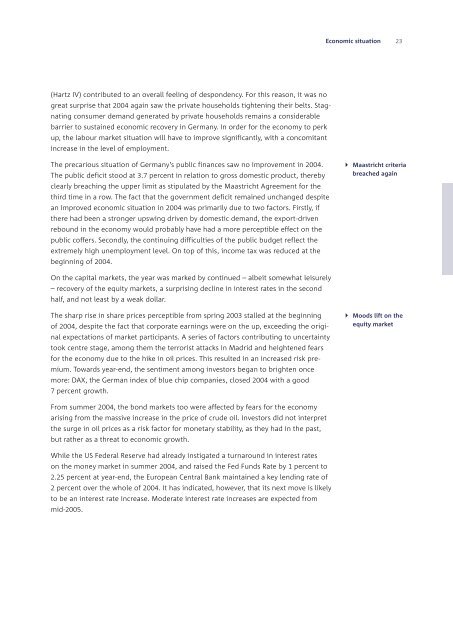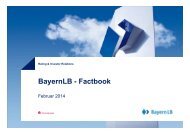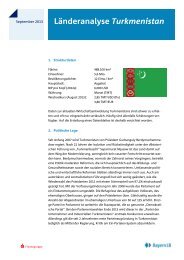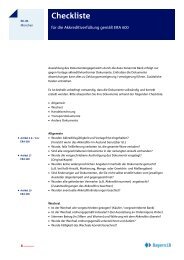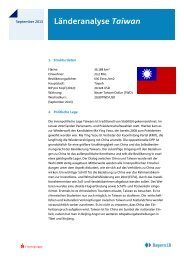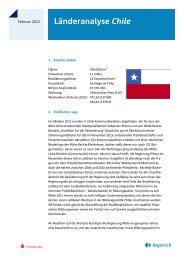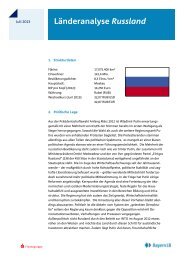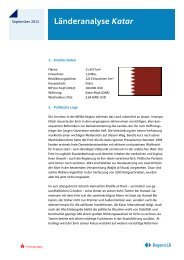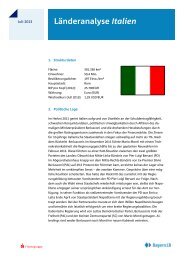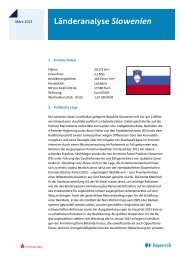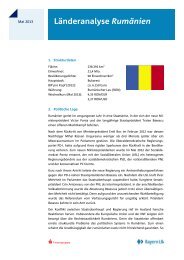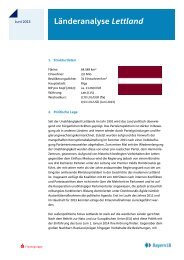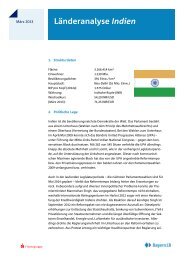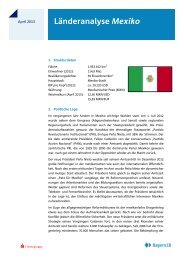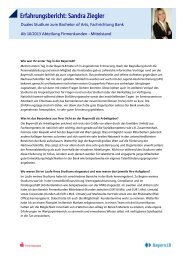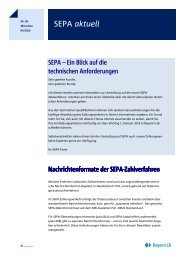A4 für Copyshop GB.indd - Bayerische Landesbank
A4 für Copyshop GB.indd - Bayerische Landesbank
A4 für Copyshop GB.indd - Bayerische Landesbank
Create successful ePaper yourself
Turn your PDF publications into a flip-book with our unique Google optimized e-Paper software.
(Hartz IV) contributed to an overall feeling of despondency. For this reason, it was no<br />
great surprise that 2004 again saw the private households tightening their belts. Stag-<br />
nating consumer demand generated by private households remains a considerable<br />
barrier to sustained economic recovery in Germany. In order for the economy to perk<br />
up, the labour market situation will have to improve significantly, with a concomitant<br />
increase in the level of employment.<br />
The precarious situation of Germany’s public finances saw no improvement in 2004.<br />
The public deficit stood at 3.7 percent in relation to gross domestic product, thereby<br />
clearly breaching the upper limit as stipulated by the Maastricht Agreement for the<br />
third time in a row. The fact that the government deficit remained unchanged despite<br />
an improved economic situation in 2004 was primarily due to two factors. Firstly, if<br />
there had been a stronger upswing driven by domestic demand, the export-driven<br />
rebound in the economy would probably have had a more perceptible effect on the<br />
public coffers. Secondly, the continuing difficulties of the public budget reflect the<br />
extremely high unemployment level. On top of this, income tax was reduced at the<br />
beginning of 2004.<br />
On the capital markets, the year was marked by continued – albeit somewhat leisurely<br />
– recovery of the equity markets, a surprising decline in interest rates in the second<br />
half, and not least by a weak dollar.<br />
The sharp rise in share prices perceptible from spring 2003 stalled at the beginning<br />
of 2004, despite the fact that corporate earnings were on the up, exceeding the origi-<br />
nal expectations of market participants. A series of factors contributing to uncertainty<br />
took centre stage, among them the terrorist attacks in Madrid and heightened fears<br />
for the economy due to the hike in oil prices. This resulted in an increased risk pre-<br />
mium. Towards year-end, the sentiment among investors began to brighten once<br />
more: DAX, the German index of blue chip companies, closed 2004 with a good<br />
7 percent growth.<br />
From summer 2004, the bond markets too were affected by fears for the economy<br />
arising from the massive increase in the price of crude oil. Investors did not interpret<br />
the surge in oil prices as a risk factor for monetary stability, as they had in the past,<br />
but rather as a threat to economic growth.<br />
While the US Federal Reserve had already instigated a turnaround in interest rates<br />
on the money market in summer 2004, and raised the Fed Funds Rate by 1 percent to<br />
2.25 percent at year-end, the European Central Bank maintained a key lending rate of<br />
2 percent over the whole of 2004. It has indicated, however, that its next move is likely<br />
to be an interest rate increase. Moderate interest rate increases are expected from<br />
mid-2005.<br />
Economic situation<br />
23<br />
} Maastricht criteria<br />
breached again<br />
} Moods lift on the<br />
equity market


